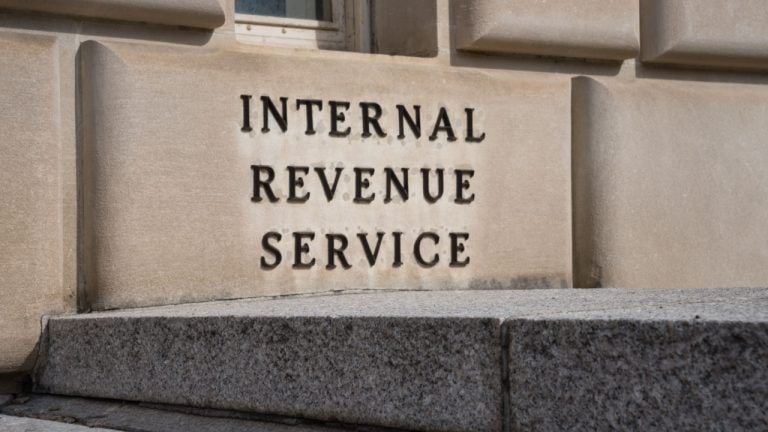 All Kraken clients receive a 25% discount on paid plans with Koinly this tax season!
All Kraken clients receive a 25% discount on paid plans with Koinly this tax season!
The post Kraken and Koinly extend partnership to demystify tax reporting appeared first on Kraken Blog.
 Nigeria’s Securities and Exchange Commission is working to bring licensed crypto exchanges into the formal tax system, with a related bill likely to pass in early 2025. Nigeria Aims to Increase Revenue The Nigerian Securities and Exchange Commission (SEC) has announced it is working to bring transactions on licensed cryptocurrency exchanges into the formal tax […]
Nigeria’s Securities and Exchange Commission is working to bring licensed crypto exchanges into the formal tax system, with a related bill likely to pass in early 2025. Nigeria Aims to Increase Revenue The Nigerian Securities and Exchange Commission (SEC) has announced it is working to bring transactions on licensed cryptocurrency exchanges into the formal tax […] Elon Musk says the U.S. tax code is torturing Americans, demanding an urgent reset while slamming wasteful government spending and pushing for massive federal budget cuts. Elon Musk Slams US Tax Code as Torture Tesla and Spacex CEO Elon Musk is pushing for a complete revamp of the U.S. tax structure, arguing that existing policies […]
Elon Musk says the U.S. tax code is torturing Americans, demanding an urgent reset while slamming wasteful government spending and pushing for massive federal budget cuts. Elon Musk Slams US Tax Code as Torture Tesla and Spacex CEO Elon Musk is pushing for a complete revamp of the U.S. tax structure, arguing that existing policies […] This week, The Wall Street Journal highlighted potential tax complications for the publicly traded company Microstrategy, particularly concerning unrealized gains. According to the report, the Corporate Alternative Minimum Tax (CAMT), introduced under the Biden administration, could impose a notable financial obligation on the firm. Microstrategy’s Billion-Dollar Bitcoin Gamble Hits a Snag: CAMT Tax Law Looms, […]
This week, The Wall Street Journal highlighted potential tax complications for the publicly traded company Microstrategy, particularly concerning unrealized gains. According to the report, the Corporate Alternative Minimum Tax (CAMT), introduced under the Biden administration, could impose a notable financial obligation on the firm. Microstrategy’s Billion-Dollar Bitcoin Gamble Hits a Snag: CAMT Tax Law Looms, […]

Bitcoin investors must navigate a complex tax landscape, including understanding taxable vs. non-taxable transactions, key regulations by jurisdiction and ways to stay compliant.
The rise of Bitcoin and other cryptocurrencies has presented exciting new investment opportunities, but it has also created a complex landscape for tax compliance. Many investors are unaware of their tax obligations, leading to unintentional errors or, in some cases, deliberate tax evasion.
This article provides a comprehensive guide on how Bitcoin investors can avoid tax fraud, covering various jurisdictions and relevant laws.
If you’re curious about whether Bitcoin investors are required to pay taxes, the short answer is yes. However, crypto tax laws for Bitcoin holders vary by jurisdiction. For instance, the IRS in the United States views cryptocurrencies as property, not currency. This classification means that instead of being taxed as regular income, cryptocurrencies are subject to capital gains taxes when sold or exchanged.
 Axios reports that Sen. Ted Cruz, a Republican from Texas, plans to wield the Congressional Review Act (CRA) next week to challenge a tax regulation that infringes on the rights of cryptocurrency brokers. This move is seen not just as a procedural tactic but as a principled stand against the expanding reach of governmental authority […]
Axios reports that Sen. Ted Cruz, a Republican from Texas, plans to wield the Congressional Review Act (CRA) next week to challenge a tax regulation that infringes on the rights of cryptocurrency brokers. This move is seen not just as a procedural tactic but as a principled stand against the expanding reach of governmental authority […] Rep. Buddy Carter (R-GA) has introduced the Fair Tax Act, a sweeping proposal to dismantle the federal tax code, abolish the IRS, and replace it with a national consumption tax—a move aimed at restoring individual economic freedom and limiting government overreach. Buddy Carter’s Fair Tax Act In a so-called act of principled defiance against an […]
Rep. Buddy Carter (R-GA) has introduced the Fair Tax Act, a sweeping proposal to dismantle the federal tax code, abolish the IRS, and replace it with a national consumption tax—a move aimed at restoring individual economic freedom and limiting government overreach. Buddy Carter’s Fair Tax Act In a so-called act of principled defiance against an […] Some in the crypto community assumed the IRS was backpedaling on reporting requirements, but all requirements are still firmly in place, the agency simply announced a grace period for exchanges to upgrade their technology. IRS Grants Crypto Exchanges More Time to Implement Platform Upgrades Confusion ran rampant on Thursday after several publications posted ambiguous headlines […]
Some in the crypto community assumed the IRS was backpedaling on reporting requirements, but all requirements are still firmly in place, the agency simply announced a grace period for exchanges to upgrade their technology. IRS Grants Crypto Exchanges More Time to Implement Platform Upgrades Confusion ran rampant on Thursday after several publications posted ambiguous headlines […]
The Internal Revenue Service (IRS) is suspending the implementation of new tax rules that will affect investors who hold crypto assets in centralized exchanges. On July 9th, 2024, the Treasury Department and the IRS published the final rules for determining the order of selling crypto assets held in centralized finance (CeFi) platforms. Investors should choose […]
The post IRS Postpones Implementation of New Tax Rules for Crypto Asset Holders Interacting With Centralized Exchanges appeared first on The Daily Hodl.
 The IRS will allow crypto holders on centralized exchanges to bypass strict tax regulations in 2025, preserving flexibility in reporting and tracking digital asset sales. IRS Announces Temporary Relief for Some Crypto Holders The Internal Revenue Service (IRS) has issued a temporary relief measure, which is expected to benefit cryptocurrency holders using centralized finance (cefi) […]
The IRS will allow crypto holders on centralized exchanges to bypass strict tax regulations in 2025, preserving flexibility in reporting and tracking digital asset sales. IRS Announces Temporary Relief for Some Crypto Holders The Internal Revenue Service (IRS) has issued a temporary relief measure, which is expected to benefit cryptocurrency holders using centralized finance (cefi) […]